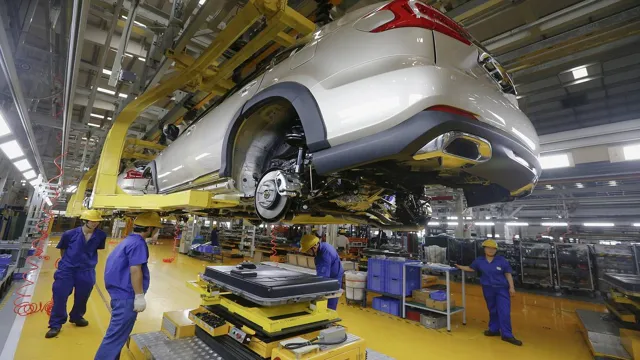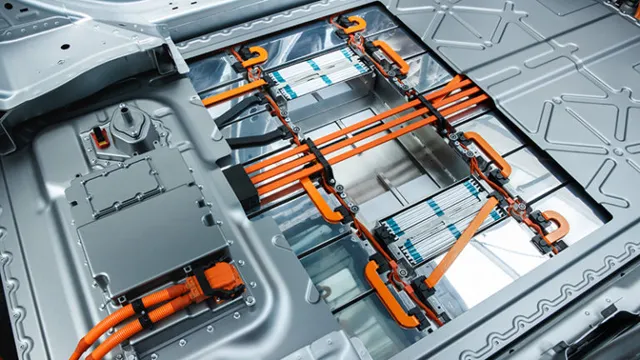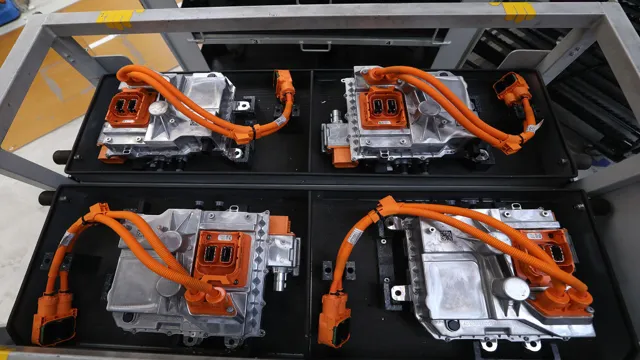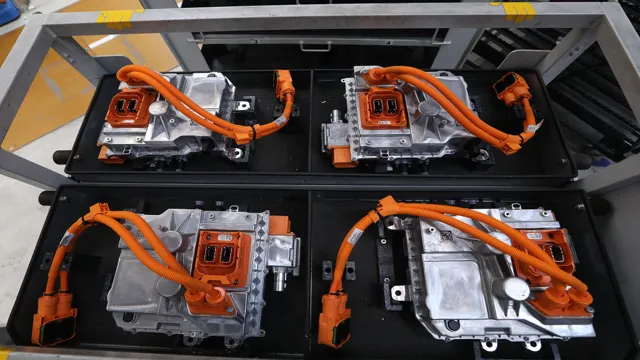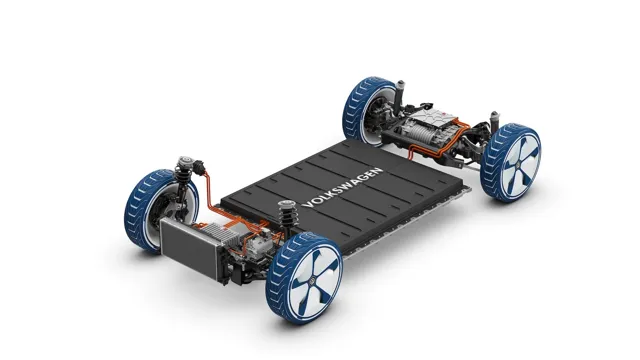Revolutionizing the Road: The Latest Electric Car Battery Technology
Electric cars are becoming increasingly popular as more people become concerned about the environment and strive to lead an eco-friendly lifestyle. One of the most significant components of an electric car is its battery, which powers the engine and facilitates the car’s movement. The development of electric car batteries technology has been a major focus for manufacturers in recent years.
This has led to significant improvements in battery performance, range, and charging times, making it easier and more practical for people to use electric cars as a viable alternative to traditional gasoline-powered vehicles. In this blog post, we will explore the various battery technologies that power electric cars and how they work, as well as the advantages and disadvantages of each. We’ll also take a closer look at the latest developments in battery technology and what the future holds for electric cars and their batteries.
What are electric car batteries?
Electric car batteries are one of the most vital components of an electric vehicle. These batteries store electrical energy to power the car’s electric motor, providing the vehicle’s movement. Modern battery technology has transformed electric cars from short-range city runabouts to long-range, practical vehicles that can take you on a road trip across the country with ease.
A typical electric car battery pack is made up of hundreds of individual lithium-ion cells, which can be recharged many times before reaching the end of their useful life. The batteries come in various shapes and sizes depending on the size of the vehicle, but they all work on the same basic principle. A charging port allows energy to be transferred from a power source into the battery pack, and the electric motor then uses the stored energy to propel the car forward.
This fascinating technology makes it possible to reduce carbon emissions and enjoy an eco-friendly ride while saving money on gas and oil.
Explaining the function of electric car batteries
Electric car batteries are the main component that powers an electric vehicle. They are rechargeable lithium-ion batteries that store energy and then allow the motor to run on that stored energy. These batteries are designed to be lightweight, durable, and have a long lifespan.
They function by using a chemical reaction within the battery to create energy that can be used by the car’s electric motor. This energy is then used to propel the car forward. The batteries also have a management system that regulates the flow of energy to the motor, ensuring that the car operates efficiently.
In short, electric car batteries are the heart of an electric car, allowing it to function without relying on traditional fossil fuels.
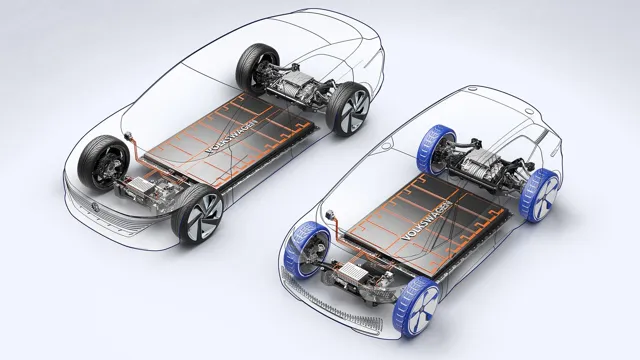
Types of electric car batteries
Electric car batteries are the driving force of an EV, providing the power required for electric motors to propel the vehicle. When it comes to electric car batteries, there are different types available in the market. One of the most common types of electric car batteries is the lithium-ion battery, which is used in most modern EVs due to its high energy density and long lifespan.
Another type of electric car battery is the solid-state battery, which is still in its developmental stage but promises to offer better energy storage, faster charging times, and improved safety over lithium-ion batteries. Nickel-metal hydride (NiMH) batteries are another type of electric car battery that has a lower energy density than lithium-ion batteries, and they’re also heavier and less efficient. However, they’re still used in some hybrid cars and offer a less expensive alternative to lithium-ion batteries.
Lead-acid batteries, which are the oldest and least effective technology, are also used in some EVs. They have a low energy density, relatively short lifespan, and require extensive maintenance. Overall, lithium-ion batteries remain the most popular and practical choice for electric car batteries.
Advancements in electric car batteries technology
The electric car industry has been evolving rapidly over the past few years thanks to advancements in electric car batteries tech. Engineers and scientists have been working tirelessly to improve the efficiency, range, and performance of electric car batteries. One major breakthrough in this area is the development of solid-state batteries that can store more energy in a smaller space.
These batteries use solid electrolytes instead of liquid ones, making them safer and less prone to catching fire. Additionally, they can recharge faster and last longer than traditional lithium-ion batteries. Another exciting development is the use of new materials, like silicon, to improve the performance of battery electrodes.
These advancements are crucial for reducing the overall cost of electric cars and making them more accessible to the general public. It’s only a matter of time before these improvements lead to electric cars that are just as capable as gasoline-powered vehicles, but with zero emissions.
Comparison of traditional and modern electric car batteries
Electric car batteries have undergone significant advancements in recent years, providing a better alternative to traditional car batteries. Modern electric car batteries are designed to be more powerful, reliable, and efficient compared to the traditional ones. One of the most significant improvements in modern electric car batteries is their ability to hold a charge for longer periods.
This is due to the introduction of advanced materials and technologies like lithium-ion batteries. Lithium-ion batteries provide high energy density, making them an ideal option for electric cars. In contrast, traditional car batteries tend to lose their power quickly, particularly in colder climates, which is one of their biggest disadvantages.
Additionally, modern electric car batteries are also significantly lighter and more compact than traditional batteries, which increases efficiency and saves on space in the vehicle. Overall, advancements in electric car battery technology have enabled electric cars to become more popular, efficient, and affordable alternatives to traditional gasoline-powered vehicles.
Impact of electric car batteries on the environment
Electric car batteries are a promising technology that has gained momentum in recent years. As we continue to advance in battery technology, we can expect to see significant environmental benefits. For instance, these batteries have the potential to reduce our reliance on fossil fuels, thereby reducing greenhouse gas emissions.
Additionally, advancements in battery storage capacity and charging times have made electric cars more convenient and accessible. With the right infrastructure and technology in place, we could see a future in which electric cars are the norm rather than the exception. However, it’s important to note that electric car batteries do have their own environmental impacts.
The production process of these batteries often involves mining of rare minerals, which can have a damaging impact on ecosystems. Moreover, the disposal of used batteries can pose significant environmental problems. Nonetheless, the benefits of electric car batteries far outweigh their drawbacks, and it is crucial that we continue to invest in this technology.
Future prospects of electric car batteries technology
Electric car batteries technology has been evolving rapidly over the years. With advancements in research and development, the future prospects for this technology are very promising. The next generation of batteries is expected to deliver higher energy storage capacity, faster charging times, and longer driving ranges.
One of the most promising developments is the use of solid-state batteries that are safer, cheaper, and more efficient than the current lithium-ion batteries. These batteries are designed to offer higher energy density, faster charging times, and longer overall lifespan. Moreover, scientists are experimenting with new materials like graphene and silicon to create batteries that are not only more durable and efficient but also much lighter.
All these advancements could lead to electric cars becoming more affordable, practical, and accessible to the general public. As the demand for electric vehicles is increasing day by day, these advancements could revolutionize the automotive industry and help reduce our carbon footprint.
Electric car batteries maintenance tips
Electric car batteries are a crucial component of any EV, powering the vehicle and providing energy storage. However, like any battery, electric car batteries require proper care and maintenance to operate at their best. One important tip for electric car battery maintenance is to periodically check the battery’s charge level and ensure it never fully depletes, as this can cause damage to the battery’s capacity over time.
Additionally, avoiding exposure to extreme temperatures can also help prolong the lifespan of an electric car battery. Using dedicated charging equipment designed for electric cars can also help optimize battery performance and longevity. With proper care and maintenance, electric car batteries can provide reliable and efficient energy storage for years to come, making them a compelling choice for eco-conscious drivers looking to reduce their carbon footprint and save money on fuel costs.
Top tips for optimizing electric car battery life
Electric car batteries are an essential part of any electric vehicle, and it’s vital to maintain them for longevity. One of the top tips to optimize electric car battery life is to keep them charged between 20% and 80%. Overcharging and undercharging can reduce the battery life and lead to deterioration.
Keep an eye on the temperature as well because extreme temperatures can cause serious damage too. If the car is parked outdoors, it’s better to park it in a shaded area to protect the battery from direct sunlight. Another tip to maintain the battery’s health is to avoid using fast chargers regularly as it puts unnecessary stress on the battery.
It’s beneficial to use a Level 2 charger to charge the battery slowly and maintain its condition. Regular battery maintenance will keep the battery in good condition and ensure it lasts longer.
Tips for charging and discharging electric car batteries
Maintaining the battery of your electric car is vital to ensure a smooth and long-lasting driving experience. One crucial tip for electric car batteries maintenance is to avoid fully discharging the battery regularly. Instead, try to recharge your car’s battery routinely before it drains completely, as this can improve the overall lifespan of the battery.
Charging the battery overnight is a great way to ensure it’s fully charged for the next day. It’s also crucial to avoid charging the battery to its maximum capacity regularly, as this can cause damage to the battery cells. Instead, keep the battery level between 20% and 80%, which can help extend the battery’s lifespan.
Regular maintenance can also help with keeping the battery in excellent condition, such as cleaning the battery terminals periodically. By following these tips for charging and discharging your electric car batteries, you can help protect your battery’s lifespan and enjoy a smoother driving experience.
Conclusion
In conclusion, the electrification of cars is revolutionizing the automotive industry. As technology improves, we are seeing longer ranges, faster charging times, and a more sustainable future. With electric car batteries leading the way, we can all feel good about reducing our carbon footprint and saving on gas money.
So charge up, buckle up, and let’s drive towards a brighter, cleaner future.”
FAQs
What is the current state of electric car battery technology?
Electric car battery technology is rapidly evolving, with new advancements being made every year. Currently, lithium-ion batteries are the most commonly used battery type for electric cars.
How long do electric car batteries typically last?
The lifespan of an electric car battery can vary depending on a number of factors, such as the type of battery, driving habits, and climate. On average, electric car batteries can last anywhere from 8 to 10 years.
What are some of the benefits of electric car batteries?
Electric car batteries offer many benefits, such as being more environmentally friendly than traditional gasoline-powered cars, lower operating costs, and the ability to charge at home.
How long does it take to charge an electric car battery?
The time it takes to charge an electric car battery can vary depending on the size of the battery and the charging method used. On average, it can take anywhere from 30 minutes to several hours to fully charge an electric car battery.


